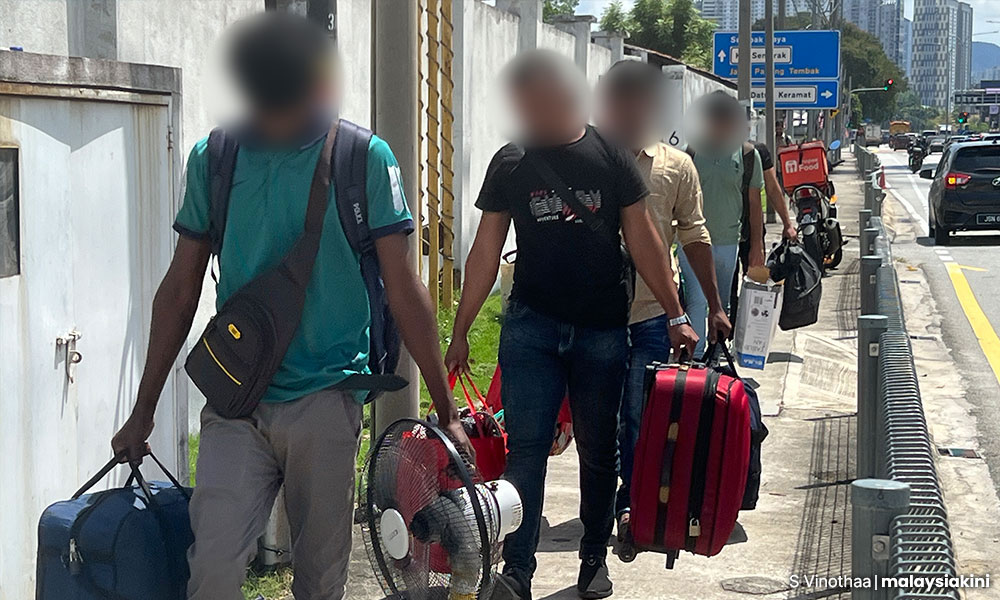The government has been urged to set up an independent Royal Commission of Inquiry to investigate the migrant workers management system and forced labour in the country.
While lauding the quick action by Human Resources Minister Steven Sim and Home Affairs Minister Saifuddin Nasution Ismail in placing companies found violating the law on a blacklist and freezing incoming migrant workers' quota, DAP vice-chairperson Teresa Kok said those measures alone are not sufficient.
In a statement today, Kok stressed the pertinence for Putrajaya to express its commitment to haul rogue companies to court and not just with fines or compounds.
“Apart from agents that ferry in migrant workers and companies employing them, the decay is also within the system.
“For far too long, Malaysians have heard horrific stories of abuses and even deaths of migrant workers at the hands of monster employers and how a light slap on the wrist for some agents and companies could be due to connections in high places and protection by those in powerful and privileged positions.
“An RCI would be able to independently unpick the fabric within the system that has shrouded the truth and has been an obstacle to transparency, integrity, and accountability,” said the Seputeh MP.
Kok said the establishment of an RCI with experts in the field to gather information and conduct investigations is one of the ways to identify the root causes of the rot - who the enablers are, the paper trails, the money trails, loopholes in the law, and in recommending solutions to this decades-old problem.
“The RCI report must then be made public and also tabled to be debated in the Parliament,” she added.
Further, she said the Immigration Department, Labour Department and other agencies remain as key players in stopping further rotting within the system when it comes to ensuring that agents and companies adhere to labour laws in the country when bringing in contract-based migrant workers into Malaysia.

“However, the irresponsible actions of a few bad apples within the government machinery have a detrimental impact on the economy of the country, not to mention a threat to the lives of migrant workers.”
‘Recognise the indicators’
On Dec 20 last year, 171 migrant workers from Bangladesh marched some 10km to the Bayu Damai police station in Pengerang, Johor, to lodge a report against their agent who failed to find them employment after three months here.
The group, however, were detained by the Immigration Department before they could lodge the report. They have since been released from custody.
Citing the matter, Kok said the Bangladeshi workers had experienced more than one indicator - outlined by the International Labour Organization’s (ILO) Special Action Programme to Combat Forced Labour (SAP-FL) - to identify persons who are possibly trapped in a forced labour situation and may require urgent assistance.
“The migrant workers have experienced deception to available jobs to physical violence in the form of starvation and abuse, to intimidation and threats, to retaining passports and work visas rendering them vulnerable to mishandling, to withholding wages and debt bondage, unsanitary living conditions, and excessive overtime.
“If the people and the government do not recognise these indicators present in the way migrant workers are treated in Malaysia, then we are part of the problem and not part of the solution,” said Kok.
Therefore, she’s confident that the Madani government would be able to come up with concrete steps to resolve the matter of forced labour and an overhaul of the migrant workers’ management system in a humane and rights-based approach. - Mkini

No comments:
Post a Comment
Note: Only a member of this blog may post a comment.